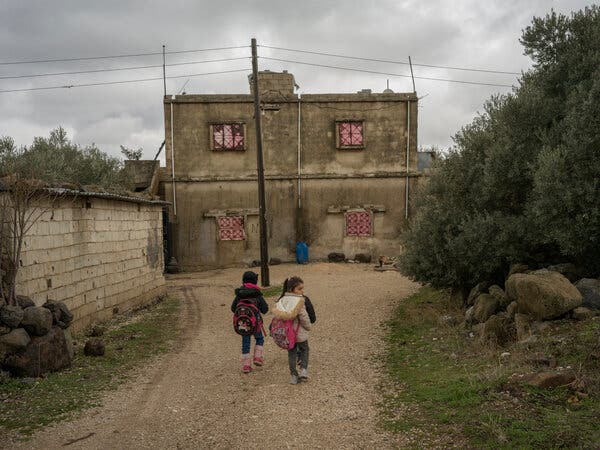The Terminal High Altitude Area Defense system was in place, Defense Secretary Lloyd J. Austin III said on Monday. The deployment comes as Israel prepares for retaliatory attacks against Iran.

An advanced missile defense system sent by the United States to Israel to thwart more attacks by Iran and its allies has arrived in Israel along with troops to operate it, Defense Secretary Lloyd J. Austin III said on Monday.
The deployment of the Terminal High Altitude Area Defense system, or THAAD, comes as the Israeli government has said it will retaliate against Iran for an attack on Oct. 1, in which Tehran fired around 180 ballistic missiles at Israel.
The missiles were intercepted by Israel’s air defenses along with those of the United States and other allies. The THAAD battery, a mobile defense system, is designed to add another layer of protection to defend cities, troops and installations from short- and intermediate-range ballistic missiles.
Mr. Austin said on Monday that the THAAD system was in place in Israel. “We have the ability to put it into operation very quickly,” he told reporters traveling with him to Ukraine.
It is the first time that U.S. troops — about 100 of whom the Pentagon said it was sending to help operate the system — have been deployed to Israel in this way since the Hamas-led Oct. 7, 2023, attacks. Their arrival comes as Israel wages war in Gaza and Lebanon against militia forces backed by Iran. Israel has also struck the Iran-backed Houthi militia in Yemen in recent months and Iran itself earlier this year.
However, it is not the first time that the United States — already Israel’s main military supplier — has boosted its military presence in the Middle East in support of Israel since the Oct. 7 attacks. Shortly after Israel went to war in Gaza in response to the attacks, the United States sent warships to the Persian Gulf and a THAAD battery and Patriot missile defense systems to unspecified locations.
There are currently more than 40,000 U.S. troops in the region, and the Pentagon said in late September that between 2,000 and 3,000 more were being sent to bolster their security.
The THAAD system, which can operate above the atmosphere, is designed to intercept ballistic missiles is also able to intercept debris from downed missiles before it hits the ground, where it can inflict casualties and damage.
Matthew Mpoke Bigg is a London-based reporter on the Live team at The Times, which covers breaking and developing news. More about Matthew Mpoke Bigg
Eric Schmitt is a national security correspondent for The Times, focusing on U.S. military affairs and counterterrorism issues overseas, topics he has reported on for more than three decades. More about Eric Schmitt
See more on: Defense Budget



